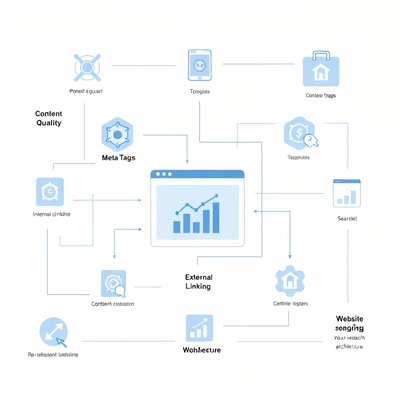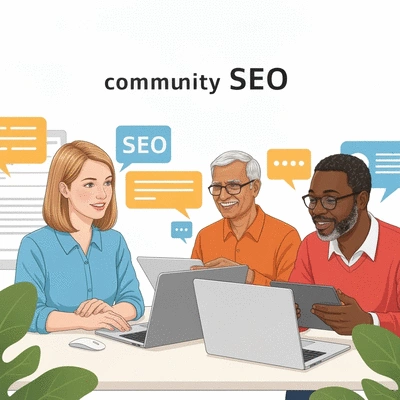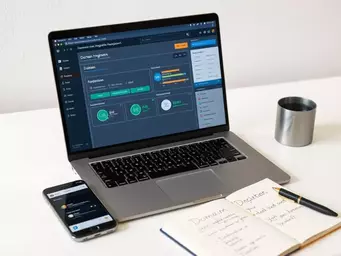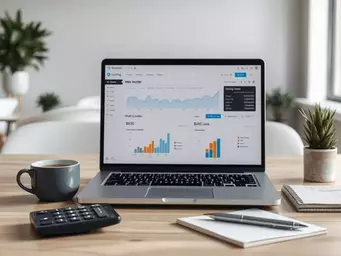Content Quality & Structure
Informative, well-structured content drives engagement and establishes authority for search engines.

Continuous learning is the key to staying ahead in the ever-evolving world of SEO. Are you ready to unlock the secrets of on-page SEO to boost your website's visibility and engagement?
This visual outlines essential on-page SEO elements, their purpose, and their impact on website visibility and user engagement.
Informative, well-structured content drives engagement and establishes authority for search engines.
Crucial for search engine understanding and attracting clicks from search results.
Fast-loading, mobile-friendly sites prevent bounce and improve user experience.
Staying updated with SEO trends and algorithms is vital for sustained growth.
Are you wondering why on-page SEO is a hot topic in the digital realm? Well, it’s essential for anyone looking to improve their website's visibility and ranking! In a world where millions of websites compete for attention, optimizing your own site can set you apart. On-page SEO involves all the elements on your website that can be optimized to enhance search engine rankings and user experience. For a comprehensive guide, check out this on-page SEO guide from Mangools.
From content quality to user engagement, on-page SEO ensures that search engines understand your site and can deliver it to the right audience. Not only does this boost your ranking, but it also improves the overall user experience, which is vital in maintaining your audience’s attention.
On-page SEO is crucial for several reasons. First, it enhances your website's visibility, ensuring that your target audience can easily find you. Think about it: if your site isn’t optimized, it might not show up in search results when potential customers are looking for services you offer!
By focusing on on-page SEO, you can create a site that not only attracts visitors but also converts them into customers. Remember, the goal is to make your content accessible and relevant to your audience while aligning it with search engine algorithms! For more insights into how search engines work and best practices, refer to the Google SEO Starter Guide.
Understanding the balance between content quality and technical factors is key to your SEO strategy. High-quality, relevant content serves as the foundation for any successful website. However, it’s equally important to ensure that the technical aspects don’t hinder user experience.
At All for Domains, we emphasize that both content and technical SEO strategies need to work hand-in-hand. You can have amazing content, but if your site's technical health is lacking, search engines may struggle to index your pages properly.
Meta tags and title tags might seem like small details, but they hold significant power in on-page SEO. These tags help search engines understand what your content is about, making them essential for ranking purposes. A compelling title tag can catch a user’s eye and encourage them to click through to your website.
By optimizing these elements, you can enhance your site's visibility while also improving the likelihood of attracting clicks from potential customers. Just like selecting the right domain name, getting your meta and title tags right is a crucial step in building a strong online presence!

Did you know? Regularly analyzing your website's performance can lead to significant improvements in your on-page SEO strategy. Utilize tools like Google Analytics and Search Console to track user behavior and identify areas for optimization. This proactive approach allows you to adapt your content and technical elements based on real user data, enhancing both visibility and user experience.
As we wrap up our discussion on on-page SEO, it’s essential to recognize the powerful techniques we’ve covered that can significantly enhance your website’s visibility and ranking. From optimizing content quality to improving technical elements, these strategies are foundational to a successful online presence. Here’s a quick recap of the most essential techniques you should implement:
By focusing on these key areas, you'll not only improve your search engine rankings but also create a user-friendly experience that encourages visitors to stay longer and engage more with your content. Remember, a well-optimized site isn't just about the technical aspects; it's also about connecting with your audience!
The digital landscape is ever-changing, and it's crucial to stay informed about the latest trends and updates in SEO. Continuous learning is key to maintaining an edge over competitors. At All for Domains, I believe in empowering our community with knowledge, so here are some ways to stay updated:
By committing to continuous education, you can adapt your strategies to meet changing algorithms and user expectations. This proactive approach will not only keep your website optimized but also set you apart as a thought leader in your field! You can find more useful resources and guidance on SEO best practices from Digital.gov's SEO section.

Your journey in mastering on-page SEO is a personal one, and I’m here to support you every step of the way. I invite you to share your experiences and insights, as our community thrives on collaboration. Have you faced challenges with your SEO strategies? Or perhaps you’ve discovered a tactic that worked wonders? I’d love to hear your stories!
Contributing to our community is easy! Here’s how you can share your experiences:
Your contributions not only help you connect with others but also enrich our collective understanding of effective on-page SEO practices. Together, we can elevate our online presence!
To further support your ongoing SEO efforts, I’ve curated a list of resources that I find incredibly helpful:
By leveraging these resources, you can enhance your SEO strategy and stay ahead of the curve. Remember, the journey to mastering on-page SEO is ongoing, and I’m excited to see where it takes you!
Here is a quick recap of the important points discussed in the article:
Domain Management Tools You Need

Every successful online venture starts with strong domain management. Are you ready to master the fu
Understanding Web Hosting Hidden Costs

Have you ever signed up for a service only to find out that the cost skyrockets after the first year
Understanding Uptime Guarantees in Hosting

What if a mere percentage could determine the success of your online presence? Understanding uptime
Domain Management Tools You Need
Understanding Web Hosting Hidden Costs
Understanding Uptime Guarantees in Hosting
Understanding Domain Names and SEO
Competitor SEO Analysis Made Simple